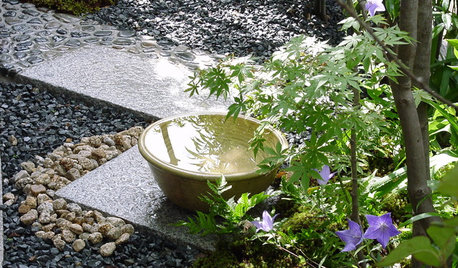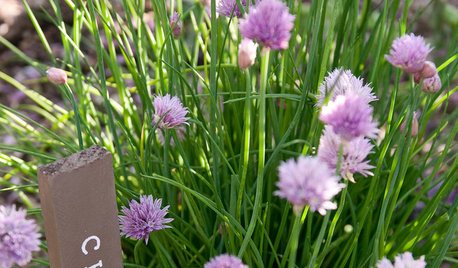Going to start brewing my first compost tea tomorrow!
rutgers1
16 years ago
Related Stories

HOMES AROUND THE WORLDThe Kitchen of Tomorrow Is Already Here
A new Houzz survey reveals global kitchen trends with staying power
Full Story
GARDENING GUIDES10 Tips to Start a Garden — Can-Do Ideas for Beginners
Green up your landscape even if you're short on time, money and knowledge, with these manageable steps for first-time gardeners
Full Story
GARDENING GUIDESGet on a Composting Kick (Hello, Free Fertilizer!)
Quit shelling out for pricey substitutes that aren’t even as good. Here’s how to give your soil the best while lightening your trash load
Full Story
DECORATING GUIDESBrew a Café Look at Home
For a javalicious vibe without the long lines and table hoggers, just borrow from your favorite coffeehouse features
Full Story
LIFEHow Do You Make Your Tea and Coffee in the Morning?
A morning cup is a must for many, and preparation comes in many guises. We look at coffee and tea habits across the Houzz community
Full Story
KITCHEN DESIGNHot Ideas and Tips for Coffee and Tea Stations
Let options like drawer inserts and built-in coffeemakers percolate now, so your hot-drinks station can best serve holiday guests
Full Story
DIY PROJECTSDining Set Makeover: Paint and Tea-Tinted Fabric Make Old Chairs New
Reclaim dated dining chairs for far less than buying new, using spray paint, modern fabric and a handful of tea bags
Full Story
ENTERTAININGThe Busy Mom's Guide to Throwing a Kids' Holiday Tea Party
Even Fancy Nancy would thrill to be a guest at this easy event, where no one will know the shortcuts but you
Full Story
WORLD OF DESIGNA Beginner’s Guide to the Japanese Tea Garden
A small roji, or teahouse garden, offers a respite from everyday life. Why not make one part of your home garden?
Full Story
GARDENING GUIDESSimple Pleasures: Savor the First Spring Day in the Garden
How will you answer the call of the garden once the birds are chirping, the bulbs are blooming and the air is inviting?
Full StorySponsored
Columbus Area's Luxury Design Build Firm | 17x Best of Houzz Winner!






skoot_cat
eastpenna
Related Professionals
Tempe Landscape Architects & Landscape Designers · La Marque Landscape Architects & Landscape Designers · Wheeling Landscape Architects & Landscape Designers · Mount Wilson Landscape Architects & Landscape Designers · Waterbury Landscape Contractors · Brockton Landscape Contractors · Forest Hill Landscape Contractors · Shenandoah Landscape Contractors · Bonney Lake Fence Contractors · Buena Park Fence Contractors · Cherry Hill Fence Contractors · Crofton Fence Contractors · Fort Worth Fence Contractors · Novato Fence Contractors · Silver Spring Fence Contractorsskoot_cat
eastpenna
rutgers1Original Author
dchall_san_antonio